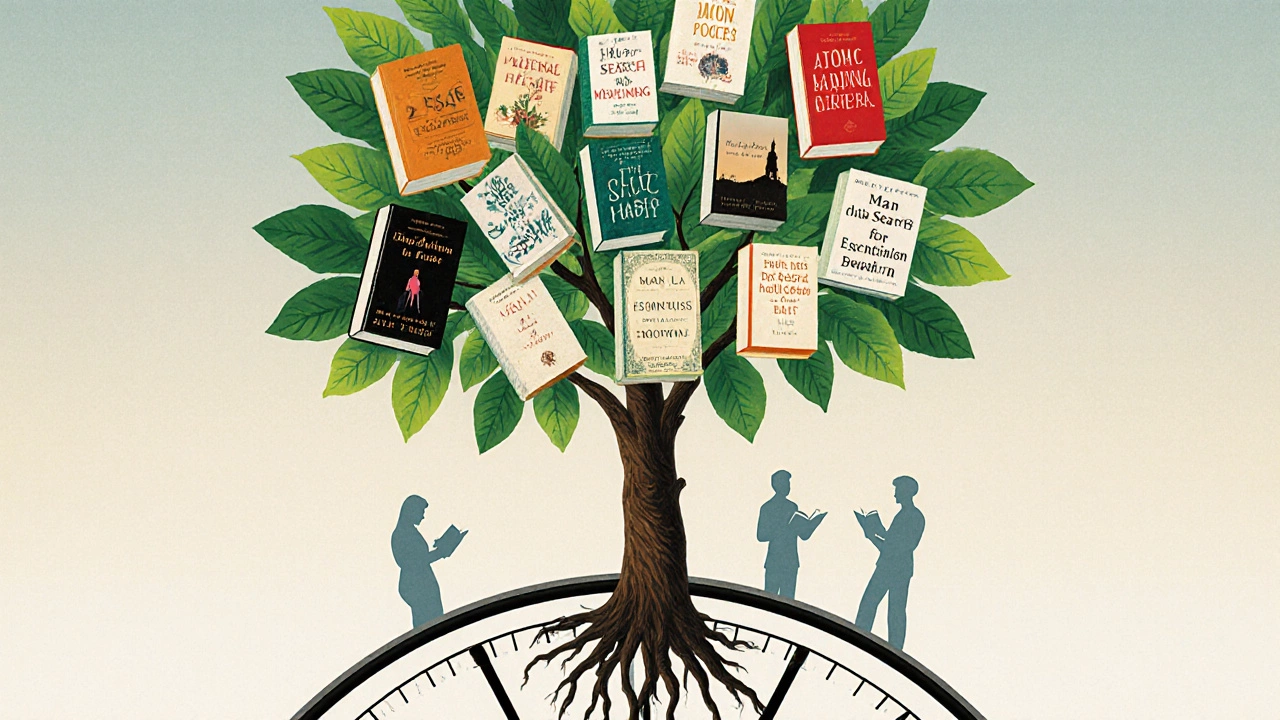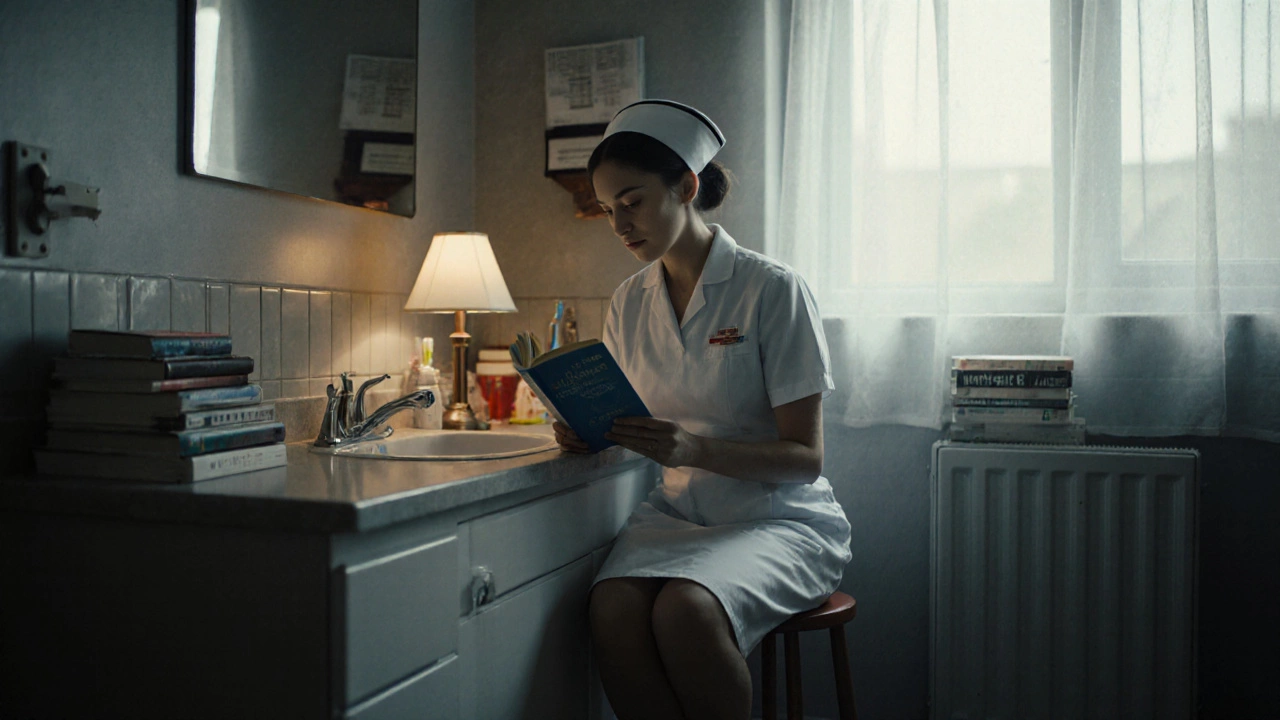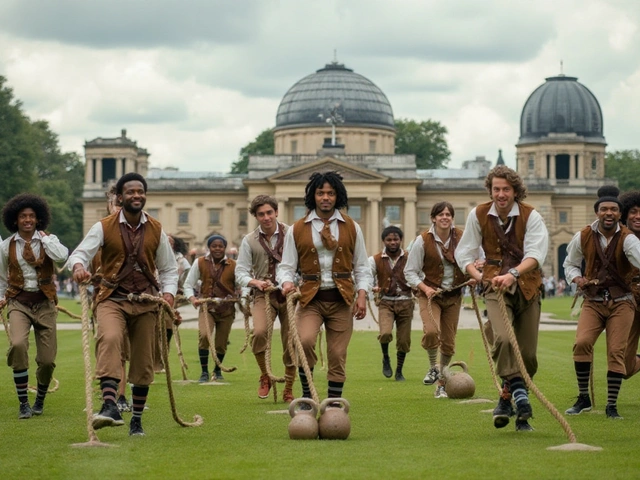Reading Goal Calculator
How Many Books Can You Read in a Year?
Discover your reading potential based on your daily reading time and speed
Reading 100 books a year sounds like something only geniuses or retired professors do. But here’s the truth: it’s not about being smart. It’s about showing up. Every day. Even for 15 minutes.
What Does 100 Books a Year Actually Mean?
Let’s break it down. 100 books in 365 days equals about 3.7 books a week. That’s less than one book every two days. If you read just 20 pages a day, you’ll hit 7,300 pages a year. Most self-help books are 200 to 300 pages. That means you’re finishing 24 to 36 books just by reading 20 pages daily. The rest? Easy reads-memoirs, essays, short guides, even audiobooks while walking the dog or doing dishes.
It’s not about speed. It’s about consistency. People who hit 100 books a year aren’t reading for hours. They’re reading in the gaps: on the train, waiting for coffee, before bed. One woman I know reads while brushing her teeth. She keeps a paperback by her sink. It’s not glamorous. But it adds up.
Who’s Actually Doing This?
You’ve probably heard about Elon Musk reading 2 books a day as a kid. Or Warren Buffett spending 80% of his day reading. But those are outliers. The real people hitting 100 books a year? They’re teachers, nurses, parents, small business owners. They’re not sitting in quiet libraries. They’re reading in the carpool line, during lunch breaks, on their phone while waiting for the kettle to boil.
A 2024 survey by the Australian Library Association found that 12% of regular readers in Australia finish over 50 books a year. That’s not 100-but it’s a start. The top readers aren’t reading classics. They’re reading practical stuff: productivity guides, psychology books, biographies of people who built something from nothing. Books like Atomic Habits, Deep Work, The Subtle Art of Not Giving a F*ck, and Essentialism show up again and again in their lists.
Why 100 Books? Isn’t That Overkill?
Some people say reading 100 books a year is pointless. You can’t absorb that much. But here’s the thing: you don’t need to remember every detail. You just need to absorb the pattern.
Think of it like fitness. You don’t need to lift 200kg to get stronger. You just need to lift something, regularly. Same with reading. Reading 100 books doesn’t make you an expert in 100 subjects. It trains your brain to spot ideas, connect dots, and recognize what’s fluff versus what’s real.
One reader told me she reads 120 books a year, but only 10 of them stick with her. The rest? They’re like seasoning. A pinch of this, a dash of that. Over time, you start cooking differently. Your decisions change. Your conversations change. You stop repeating the same mistakes because you’ve read about them-multiple times-across different authors.
The Real Barrier Isn’t Time. It’s Attention.
Most people think they don’t have time to read 100 books. But they spend 3 hours a day on their phones. That’s 1,095 hours a year. If you cut that by half, you’ve got 547 hours. Even reading at 20 pages an hour, that’s over 10,000 pages. Enough for 35 to 50 books.
The real problem? Distraction. You open a book. Your phone buzzes. You check it. Then another. Then you’re scrolling TikTok for 20 minutes. Suddenly, your reading time is gone.
People who hit 100 books a year don’t fight distraction. They avoid it. They:
- Turn off notifications during reading hours
- Keep books visible-on their nightstand, in their bag, on their tablet home screen
- Use audiobooks for chores and commutes
- Set a daily page goal: 10, 15, 20-it doesn’t matter as long as it’s daily
One man in Brisbane reads 20 pages before he checks his email. No exceptions. He’s read 137 books in two years.

What Kind of Books Should You Read?
Not every book needs to be a masterpiece. But if you’re aiming for growth, here’s what works:
- Self-help books (like Atomic Habits, The 5 AM Club, How to Win Friends and Influence People)-they give you tools
- Biographies (Steve Jobs, Marie Curie, Nelson Mandela)-they show how real people overcame obstacles
- Psychology books (like Thinking, Fast and Slow, Man’s Search for Meaning)-they explain why you think the way you do
- Short nonfiction (under 150 pages)-they’re fast wins that build momentum
- Classic fiction (like 1984, Crime and Punishment)-they stretch your empathy and imagination
Don’t force yourself to read dense philosophy if it bores you. Read what pulls you in. Then, slowly, challenge yourself. Read one hard book every two months. That’s enough to stretch your brain without burning out.
What Happens When You Read This Much?
After 6 months, you’ll notice small shifts:
- You stop reacting emotionally to criticism-you’ve read about emotional regulation
- You say ‘no’ more often-you’ve read about priorities
- You ask better questions at work-you’ve read about systems and decision-making
- You feel less alone in your struggles-you’ve read stories from people who felt the same
One teacher in Perth told me she started reading 100 books a year after her divorce. She didn’t do it to fix herself. She did it because she needed to feel like she was still learning. Two years later, she started a book club. Then a podcast. Then a community literacy program. She didn’t become a better reader. She became a better version of herself.
Is 100 Books a Year Right for You?
Maybe not. And that’s okay.
Reading 100 books a year isn’t a competition. It’s a tool. If you’re trying to change your life-your habits, your mindset, your relationships-it’s one of the most powerful tools you can use. But if you’re reading because you feel pressured, you’ll quit.
Start with 12. One book a month. That’s 15 minutes a day. After three months, you’ll have read 36 books. You’ll feel different. You’ll want more. That’s when the habit takes over.
Don’t aim for 100. Aim for 10. Then 20. Then 50. The number doesn’t matter. What matters is that you’re still reading next year. And the year after that.

Real People. Real Results.
Here are three people who read 100+ books a year-and what they gained:
- Emma, 34, nurse in Sydney: Read 112 books in 2024. Her top 5: Atomic Habits, The Power of Now, Range, Quiet, Thinking in Bets. Result: She switched from night shifts to day shifts because she learned how to set boundaries.
- David, 48, small business owner in Adelaide: Reads 150 books a year, mostly audiobooks. His secret: listens while driving, cleaning, and walking his dog. Top 5: Essentialism, Deep Work, Never Split the Difference, Start with Why, Atomic Habits. Result: His business revenue doubled after applying one idea from Essentialism.
- Lena, 29, student in Melbourne: Reads 108 books a year. Mostly fiction and psychology. Top 5: Man’s Search for Meaning, The Midnight Library, Thinking, Fast and Slow, Educated, Normal People. Result: She went from panic attacks to leading a campus mental health group.
They didn’t start with 100. They started with one page.
How to Start Today
You don’t need a reading challenge. You don’t need a special app. You just need to pick one book and open it.
Here’s your 3-step starter plan:
- Choose one book you’ve been meaning to read. Not the one everyone says you should read. The one that calls to you.
- Set a timer for 10 minutes. Read. No phone. No distractions.
- Do it again tomorrow. And the next day.
That’s it. No goals. No pressure. Just 10 minutes. After 30 days, you’ll have read 5 hours. That’s 100 to 200 pages. You’ll be halfway to your first book. And you’ll wonder why you waited so long.
Final Thought: It’s Not About Quantity. It’s About Connection.
Reading 100 books a year isn’t about bragging rights. It’s about staying curious. It’s about refusing to let your mind get lazy. It’s about finding answers in places you didn’t expect.
Every book you finish is a conversation with someone who’s been there. Someone who struggled. Someone who figured it out. And if you keep showing up, one day, you’ll be the one writing the book someone else reads to get through their day.
Is reading 100 books a year realistic for a busy person?
Yes, if you treat reading like brushing your teeth-not a chore you do when you have time, but a non-negotiable part of your day. People who do it read in small chunks: 10-20 minutes before bed, during lunch, or while commuting. Audiobooks help. So does keeping a book visible. You don’t need hours. You just need consistency.
Do I need to read only self-help books to benefit?
No. Self-help books give you tools, but fiction, biographies, and psychology books build your empathy, perspective, and critical thinking. A mix works best. Read one self-help book, then one novel, then a biography. Variety keeps your brain engaged and prevents burnout.
What if I forget what I read?
You will forget most of it-and that’s okay. You don’t need to remember every quote. What matters is that the ideas slowly change how you think. Over time, you’ll find yourself making decisions you didn’t used to make, saying things you didn’t used to say. The book’s influence lives in your behavior, not your memory.
Should I track my reading progress?
Tracking helps, but only if it motivates you. Some people love apps like Goodreads. Others hate them. If tracking makes you feel pressured, stop. Just read. If it gives you a sense of accomplishment, keep going. The goal isn’t to hit 100. The goal is to stay curious.
Can I read 100 books if I’m not a fast reader?
Absolutely. Speed doesn’t matter. One person reads 100 books a year at 50 pages an hour. Another reads 30 books at 150 pages an hour. What matters is how often you open a book. Read slowly if you need to. Re-read passages. Highlight. Take notes. The depth of your engagement matters more than how fast you turn pages.
What’s the best self-help book to start with?
Start with Atomic Habits by James Clear. It’s practical, easy to read, and gives you a clear system to build habits without willpower. It’s not magic. It’s mechanics. If you can apply just one idea from it-like making habits obvious, attractive, easy, and satisfying-you’ll see results in weeks.





